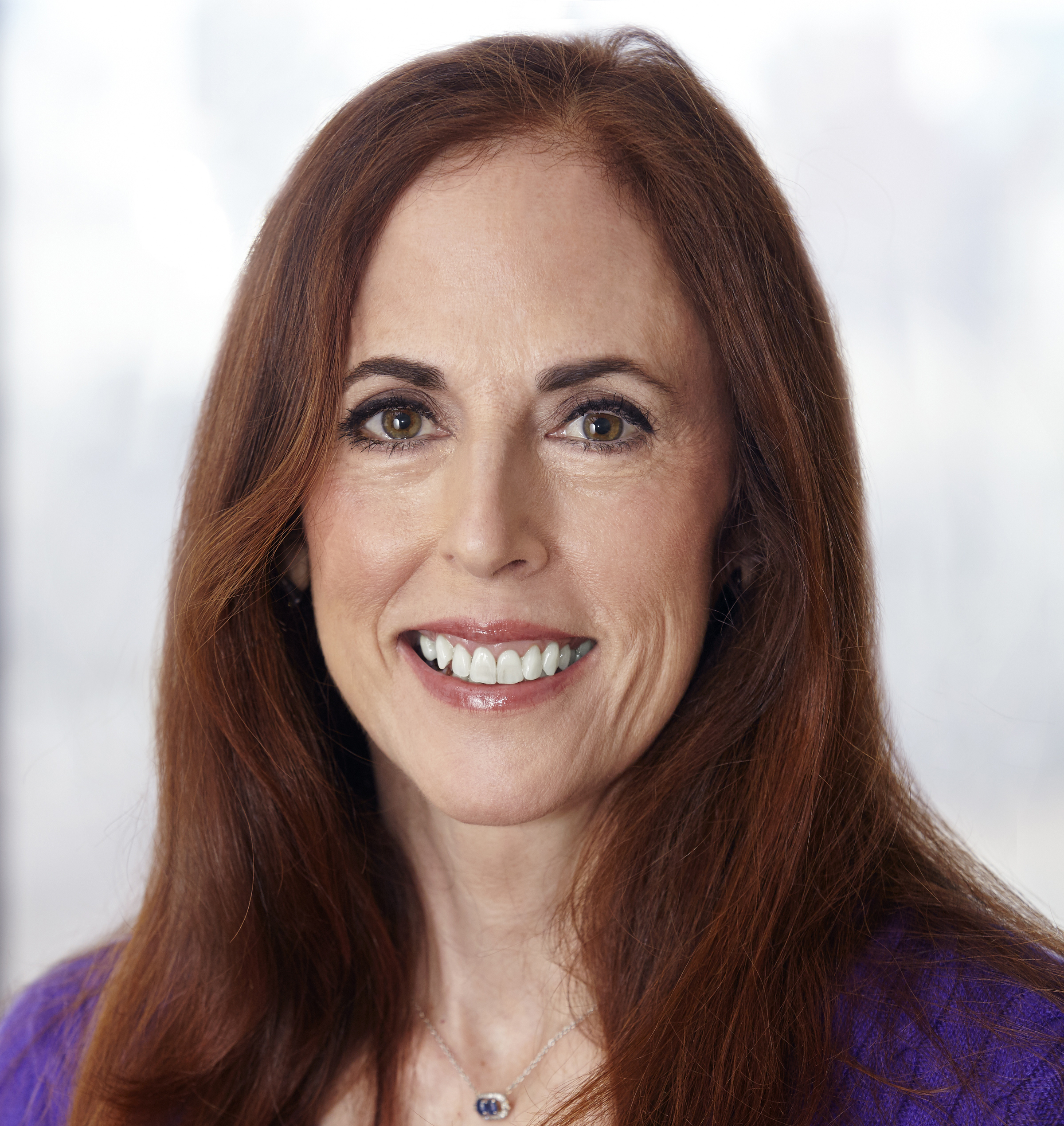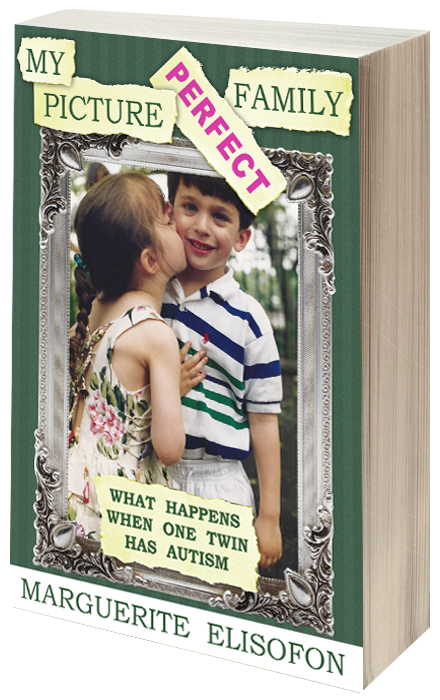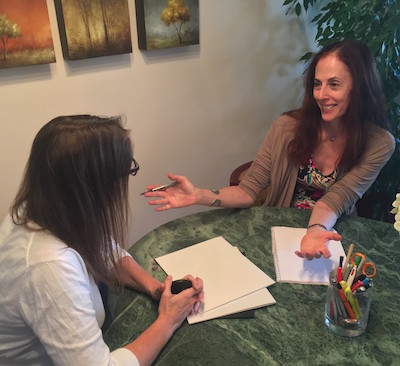 After watching earlier episodes of The Good Doctor, I was particularly keen to see this week’s show because it featured a young actor on the autism spectrum, making a guest appearance as a patient with autism. I am sincere in saying that I applaud the efforts of this young actor, and I’m delighted that he was given an opportunity to play a character with his disability (instead of the role going to a neurotypical actor, which is what usually happens). Of course, I must also admit to being disappointed that my daughter Samantha was not chosen for the part, especially since her agent said that she gave a strong audition. It would have been exciting and fun for Samantha to film in Vancouver with only a few days’ notice. However, our daughter has already had a thrilling year celebrating her success as co-star of Keep the Change, (See Autism Fairytale, 11/10/17) so I certainly don’t mind giving someone else a chance in the spotlight.
After watching earlier episodes of The Good Doctor, I was particularly keen to see this week’s show because it featured a young actor on the autism spectrum, making a guest appearance as a patient with autism. I am sincere in saying that I applaud the efforts of this young actor, and I’m delighted that he was given an opportunity to play a character with his disability (instead of the role going to a neurotypical actor, which is what usually happens). Of course, I must also admit to being disappointed that my daughter Samantha was not chosen for the part, especially since her agent said that she gave a strong audition. It would have been exciting and fun for Samantha to film in Vancouver with only a few days’ notice. However, our daughter has already had a thrilling year celebrating her success as co-star of Keep the Change, (See Autism Fairytale, 11/10/17) so I certainly don’t mind giving someone else a chance in the spotlight.
However, from the moment I saw Samantha’s script, I knew it was unlikely she’d be chosen for the role. The director wanted someone younger, and I could see they wanted the character to “bond” with Dr. Shaun (Unspoken translation: male is preferable). As the world is slowly learning, females with autism often display different symptoms or express the stereotyped “male” symptoms in more subtle ways. But The Good Doctor is NOT interested in subtlety or breaking stereotypes. Since 80% of those diagnosed with autism are male, I guess they figured a young man with severe symptoms would be more recognizable to TV audiences who have only a passing knowledge (or interest?) in autism. The script called for lots of thrashing around, sensitivity to light, sound, and touch in addition to severely limited verbal ability. Oh yes, and the character had to be obsessed by numbers—steps from the ambulance to the ER. Sound familiar? For my taste, it’s TOO familiar and depressingly like Rain Man.
 I really, really wanted to like The Good Doctor. After all, shouldn’t I be grateful there’s enough interest in the subject to create a show? My answer is both yes and no. I AM happy that there are more opportunities for actors with autism to play characters on the spectrum, but I’m deeply saddened that the writers of this series are offering over-simplified, one-dimensional caricatures of people with autism. I’m also disappointed that the lead role was given to a fairly well-known neurotypical actor, Fred Highmore. I LOVED his performance as a musical prodigy in August Rush. He was both adorable and believable in that movie. Not so much in The Good Doctor, where he once again plays a gifted person, who happens to have autism. Can’t we escape from the extremes? Must the autism character be off-the-charts brilliant (to be admirable) or so severely challenged (to be sympathetic)? What TV writers and their audiences need to understand (and would probably enjoy a LOT more) is that characters with autism are real people with desires, dreams and personalities too. Despite his genius and photographic memory of human anatomy, The Good Doctor is not all that likable. Audiences are supposed to connect with Dr. Shaun during flashbacks to his sad childhood, where his parents mistreated him and his protective younger brother died. Unfortunately, these flashbacks often slow down the momentum of the show—long enough for viewers to lose the thread (or stop caring about it). Also, Fred Highmore speaks in the MOST annoying, sing-song voice I have ever heard. Where did he get the idea that people with autism speak that way? I don’t know a single person on the autism spectrum—and I’ve met many—who sounds anything like Dr. Shaun. It makes me wonder if anyone connected with The Good Doctor did any serious research into autism. Clearly, the creators of the show have no deep personal connection to the autism world, as evidenced by the lack sufficient sensitivity and affection for the main character in the series. So far, I’m sorry to say, the show feels like it’s exploiting autism, rather than explaining, educating, or even entertaining (in my case). I feel like we’re seeing a Betty Crocker recipe to cash in on the current interest in autism: Hire a somewhat well-known, neurotypical male actor who was a child star, add other doctors who are a blend of Grey’s Anatomy and
I really, really wanted to like The Good Doctor. After all, shouldn’t I be grateful there’s enough interest in the subject to create a show? My answer is both yes and no. I AM happy that there are more opportunities for actors with autism to play characters on the spectrum, but I’m deeply saddened that the writers of this series are offering over-simplified, one-dimensional caricatures of people with autism. I’m also disappointed that the lead role was given to a fairly well-known neurotypical actor, Fred Highmore. I LOVED his performance as a musical prodigy in August Rush. He was both adorable and believable in that movie. Not so much in The Good Doctor, where he once again plays a gifted person, who happens to have autism. Can’t we escape from the extremes? Must the autism character be off-the-charts brilliant (to be admirable) or so severely challenged (to be sympathetic)? What TV writers and their audiences need to understand (and would probably enjoy a LOT more) is that characters with autism are real people with desires, dreams and personalities too. Despite his genius and photographic memory of human anatomy, The Good Doctor is not all that likable. Audiences are supposed to connect with Dr. Shaun during flashbacks to his sad childhood, where his parents mistreated him and his protective younger brother died. Unfortunately, these flashbacks often slow down the momentum of the show—long enough for viewers to lose the thread (or stop caring about it). Also, Fred Highmore speaks in the MOST annoying, sing-song voice I have ever heard. Where did he get the idea that people with autism speak that way? I don’t know a single person on the autism spectrum—and I’ve met many—who sounds anything like Dr. Shaun. It makes me wonder if anyone connected with The Good Doctor did any serious research into autism. Clearly, the creators of the show have no deep personal connection to the autism world, as evidenced by the lack sufficient sensitivity and affection for the main character in the series. So far, I’m sorry to say, the show feels like it’s exploiting autism, rather than explaining, educating, or even entertaining (in my case). I feel like we’re seeing a Betty Crocker recipe to cash in on the current interest in autism: Hire a somewhat well-known, neurotypical male actor who was a child star, add other doctors who are a blend of Grey’s Anatomy and  House, stir in a minor role for an actor with autism to be politically correct, then mix in clichéd flashbacks to a troubled childhood, and voila, you have a TV series on Monday nights that might survive to return for another season.
House, stir in a minor role for an actor with autism to be politically correct, then mix in clichéd flashbacks to a troubled childhood, and voila, you have a TV series on Monday nights that might survive to return for another season.
 If The Good Doctor does survive—and I sincerely hope it will—I’d recommend that writers dig deeper, and hire more actors on the spectrum to play flesh and blood characters who break stereotypes instead of reinforcing them. I know a bunch of talented actors with autism (in addition to my daughter) who could breathe some life and believability into this show. See EPIC Players at www.epicplayersnyc.org. Equally important, how about a sensitive and knowledgeable script doctor? I can think of at least two, who would be well-qualified—Samantha’s twin brother Matthew (co-author of Being Charlie) and Rachel Israel, writer and director of the award winning Keep the Change.
If The Good Doctor does survive—and I sincerely hope it will—I’d recommend that writers dig deeper, and hire more actors on the spectrum to play flesh and blood characters who break stereotypes instead of reinforcing them. I know a bunch of talented actors with autism (in addition to my daughter) who could breathe some life and believability into this show. See EPIC Players at www.epicplayersnyc.org. Equally important, how about a sensitive and knowledgeable script doctor? I can think of at least two, who would be well-qualified—Samantha’s twin brother Matthew (co-author of Being Charlie) and Rachel Israel, writer and director of the award winning Keep the Change.






 Marguerite Elisofon is a New York City writer and the author of My Picture Perfect Family, a memoir about how her family navigated life with a child on the autistic spectrum before the internet and support groups existed. She also blogs about parenting young adults and disability related issues in The Never Empty Nest. Her writing has been featured in a variety of publications, including Time and NY Metro Parents magazine, and her family’s story has been featured by the NY Post, Fox News, The Daily Mail, and on Jenny McCarthy’s Dirty Sexy Funny radio show. A Vassar graduate, Marguerite was born and raised in New York City, where she still lives with her husband, Howard, in their mostly-empty nest. She is available to speak about a wide variety of issues relating to twins, parenting, and autism.
Marguerite Elisofon is a New York City writer and the author of My Picture Perfect Family, a memoir about how her family navigated life with a child on the autistic spectrum before the internet and support groups existed. She also blogs about parenting young adults and disability related issues in The Never Empty Nest. Her writing has been featured in a variety of publications, including Time and NY Metro Parents magazine, and her family’s story has been featured by the NY Post, Fox News, The Daily Mail, and on Jenny McCarthy’s Dirty Sexy Funny radio show. A Vassar graduate, Marguerite was born and raised in New York City, where she still lives with her husband, Howard, in their mostly-empty nest. She is available to speak about a wide variety of issues relating to twins, parenting, and autism. 